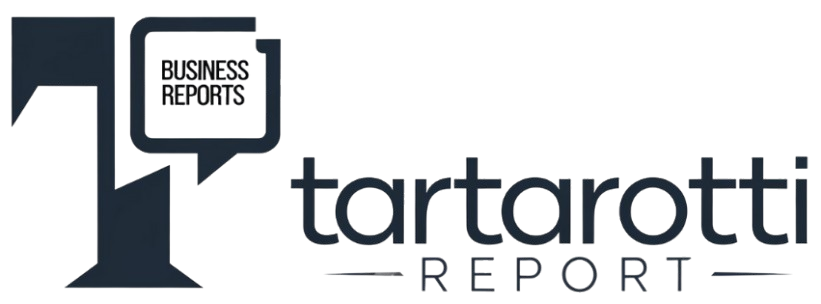Introduction:
High-performance executives are constantly challenged to balance intense professional demands with the pursuit of a healthy and balanced life. In this scenario, ESG (Environmental, Social, and Governance) principles have become key to guiding practices that not only promote personal well-being, but also reflect greater corporate responsibility. Integrating executive health, performance and a balanced life within ESG practices allows leaders to promote both their own development and the sustainable growth of the company.
However, to achieve this harmony, it is necessary to implement health and wellness programs that include physical activity, stress management and a balanced diet. This article explores how executives can maintain high performance while balancing their personal and professional lives, following practical strategies that respect the ESG pillars. The following are practical tips for achieving this balance in a sustainable and effective way.
Part 1: Straight to the Point 🎯 – Basic Strategies and Practical Actions
Part 1, “Straight to the Point”, offers practical actions and suggestions for immediate action.

How Executives Can Maintain High Performance and a Balanced Life
Here are five essential tips for executives to maintain a balanced life while achieving high performance, based on the principles of health and ESG.
- Prioritize Self-Care as Part of High Performance
- How to do it: Self-care should not be considered a luxury, but a priority for those who want to maintain high performance in the long term. This includes making time for regular physical activity, relaxation practices and mental health care. For executives, this can be integrated into the agenda in a strategic way: scheduling exercise sessions as fixed appointments or incorporating moments of pause during the day for quick breathing and mindfulness techniques.
- Why it’s important: Science shows that regular self-care improves concentration, resilience to stress and decision-making. Executives who neglect self-care are more at risk of suffering burnout and having their productivity affected. A study published in the Harvard Business Review revealed that leaders who prioritize self-care perform better in high-pressure environments.
- Develop a Training Routine Focused on Body and Mind
- How to do it: Executives need training that boosts physical and mental energy. A balanced exercise program can include cardiovascular activities, weight training, stretching and practices that stimulate mental focus, such as yoga or meditation. To optimize results, choose strategic times for training, such as early in the morning, before important appointments, to start the day with energy and mental clarity.
- Why it’s important: Regular physical exercise helps to reduce levels of cortisol, the stress hormone, while stimulating the production of endorphins, which are responsible for feelings of well-being. In addition, regular exercise improves sleep quality and mood, critical factors for executives facing long working hours. Studies show that short, high-intensity workouts can have the same positive impact on busy executives as longer workouts, provided they are done consistently.
- Establish Clear Boundaries Between Personal and Professional Life
- How to do it: Defining boundaries between personal and professional life is one of the biggest challenges for executives, but it is fundamental to maintaining balance. This can be done by establishing fixed start and end times, turning off electronic devices during leisure time and creating a culture of “disconnection” within the company. Encouraging staff to respect these limits is also part of the process.
- Why it’s important: The lack of separation between work and personal life can lead to emotional exhaustion and decreased productivity in the long term. A study by the Journal of Business and Psychology revealed that leaders who maintain a healthy work-life balance are more creative and perform better in their roles. In addition, promoting this practice within companies is directly aligned with ESG’s social values, guaranteeing a healthy and sustainable working environment.
- Adopt a Functional Diet for High Performance
- How to do it: Executives who need to maintain high performance and mental clarity should adopt a functional diet, rich in nutrients that promote brain and physical health. This includes regular consumption of fruits, vegetables, whole grains, lean proteins and healthy fats such as omega-3. A balanced diet should also avoid processed foods rich in refined sugars, which can cause energy spikes followed by fatigue.
- Why it’s important: Studies by the Harvard School of Public Health have shown that a healthy and balanced diet has a direct impact on cognitive capacity and decision-making, critical factors for executives. Foods such as fish rich in omega-3, nuts and green leafy vegetables have been associated with better brain function and protection against cognitive decline. In addition, promoting functional nutrition in companies contributes to organizational health and employee well-being, connecting to the ESG pillars.
- Incorporate Sustainability Practices into Your Health Routine
- How to do it: As well as looking after their own health, executives can adopt practices that also respect the environment, promoting a connection between individual health and environmental responsibility. This can include choosing food from local and organic producers, reducing the use of plastic packaging, and encouraging the use of sustainable transportation, such as bicycles or electric vehicles, for short commutes.
- Why it’s important: Personal health is intrinsically linked to the health of the planet. Executives who align their lifestyle habits with sustainable practices not only promote their own longevity, but also contribute to a positive environmental impact. A report by the Global Reporting Initiative (GRI) suggests that companies whose leaders promote sustainable practices have greater engagement with stakeholders and a stronger reputation. This shows how health and sustainability can complement each other to meet ESG objectives.
Part 2: Explaining the Concept Cientificamente👨🏻🔬 -Deepening your knowledge
Part 2, “Explaining the Concept Scientifically”, provides a scientifically-based in-depth look at the “whys” and explains in more detail the suggestions set out in part 1

The Connection Between Executive Health, High Performance and ESG
Executive health and work-life balance are crucial factors not only for individual performance, but also for the success of an organization. Science supports the implementation of personalized health practices for business leaders, with a focus on measurable results that also align with ESG (Environmental, Social, and Governance) principles. Below, we examine the scientific basis behind the wellness strategies that enable high performance and how they connect directly to ESG objectives.
1. The Physiological Impact of Regular Self-Care on Executives
Self-care is more than just a wellness practice; it is a physiological necessity for sustained performance. Studies indicate that chronic stress can lead to increased cortisol levels, which in turn negatively affects the immune system, cardiovascular health and cognition. A 2020 study published in Psychoneuroendocrinology showed that executives who integrate self-care practices, such as meditation and relaxation techniques, have lower cortisol levels and better cognitive function.
These practices also have an impact on sleep quality, another essential factor for high performance. Sleep deprivation impairs decision-making and problem-solving, while adequate sleep improves memory and creativity. A review article in the Journal of Sleep Research confirmed that leaders who sleep adequately have a greater capacity for leadership and strategic decision-making under pressure.
2. The Importance of Physical Exercise for High Cognitive Performance
Physical exercise has a direct impact on the mental health and cognitive function of executives. When incorporated on a regular basis, training not only improves physical fitness, but also increases the production of neurotrophic factors, such as BDNF (brain-derived neurotrophic factor), which promotes neurogenesis and synaptic plasticity.
A study carried out by the American Heart Association showed that regular exercise, especially aerobic training, improves cerebral blood flow, resulting in a better ability to focus and make decisions. In addition, strength training, such as weight training, contributes to the release of endorphins and reduces anxiety and stress levels, creating an environment conducive to more effective decisions and more confident leadership.
These benefits are evident in executive productivity and align with ESG principles, as wellness programs for leaders promote both individual health and the sustainability of the organization.
3. Functional Nutrition and Its Relation to High Performance
Functional nutrition is another fundamental component for executives seeking high performance. Nutritional science highlights the importance of consuming foods that support brain health, improving mental clarity and resistance to stress. Foods rich in omega-3 fatty acids, such as oily fish and nuts, are associated with better cognitive function and protection against age-related cognitive decline.
In addition, balanced diets with a low glycemic index help maintain constant energy levels throughout the day, avoiding glucose spikes that can cause fatigue and loss of focus. A 2019 study published in the Journal of Nutrition showed that a diet based on vegetables, whole grains and lean proteins improves executive function and reduces feelings of tiredness in high-pressure environments.
These food choices also connect to the sustainability principles of the ESG “Environmental” dimension. Promoting sustainable nutrition, with a focus on local and organic food, not only improves the health of executives, but also contributes to reducing the corporate carbon footprint.
4. How Wellness Programs Contribute to Corporate Governance
In the “Governance” dimension of ESG, executive health plays a vital role in ethical and effective decision-making. Healthy leadership promotes transparency, resilience and, above all, a culture of well-being that permeates the entire organization. A Harvard Business Review study highlighted that executives with healthy habits tend to make more thoughtful, data-based decisions, avoiding impulses arising from stress.
Corporate governance benefits directly from executive health programs, since healthy leaders create more productive and sustainable work environments. This reinforces the company’s commitment to its stakeholders, demonstrating that employee well-being is aligned with the organization’s long-term objectives.
5. Measuring the Impact of Health Programs on ESG Goals
Integrating executive health with ESG requires measuring clear and objective results. ESG reports should include metrics related to the well-being of leaders and employees, such as:
- Reduction in occupational illnesses and sick leave
- Increased employee satisfaction levels
- Improved levels of productivity and innovation
- Reduction in executive talent turnover
These indicators not only measure the success of health programs, but also strengthen the company’s transparency and commitment to social and environmental responsibility.
Conclusion
Maintaining high performance while preserving a balanced life is possible when executive health principles are integrated into ESG practices. Implementing wellness programs that promote self-care, physical training and functional nutrition not only improves the health of executives, but also contributes to long-term organizational success. In addition, these practices reinforce corporate responsibility in relation to sustainability and governance, positively impacting all stakeholders involved.
Executives who incorporate healthy practices into their routines become not only better leaders, but also agents of change in their companies, guiding the organization towards a more sustainable, balanced and productive future.

Kelton Tartarotti, a specialist in Health, Longevity and Lifestyle Reprogramming, brings an innovative approach to corporate and personal well-being in the Tartarotti Report. With a comprehensive background in Physical Education, including a BA, BSc and post-graduate studies in the Physiological Basis of Personalized Training and Sports Nutrition, Kelton has a solid foundation in sports and health sciences.
He is registered with the Regional Council of Physical Education (CREF-ES) under number: 005334-G/ES
His experience includes:
International certification as a Personal Trainer by the World Fitness Association (Florida/USA)
Coaching training by ABRACOACH
Specialization in Integrative Functional Health
15 years as a physical trainer for elite MMA athletes in world events
Working as a Physical Trainer at the Espírito Santo Olympic Center (COES)
In the Tartarotti Report, Kelton offers valuable insights into:
Scientifically-based executive health protocols
Stress management and resilience techniques for leaders
Sleep optimization strategies for cognitive performance
Functional nutrition adapted to corporate life
Efficient exercise programs for busy schedules







